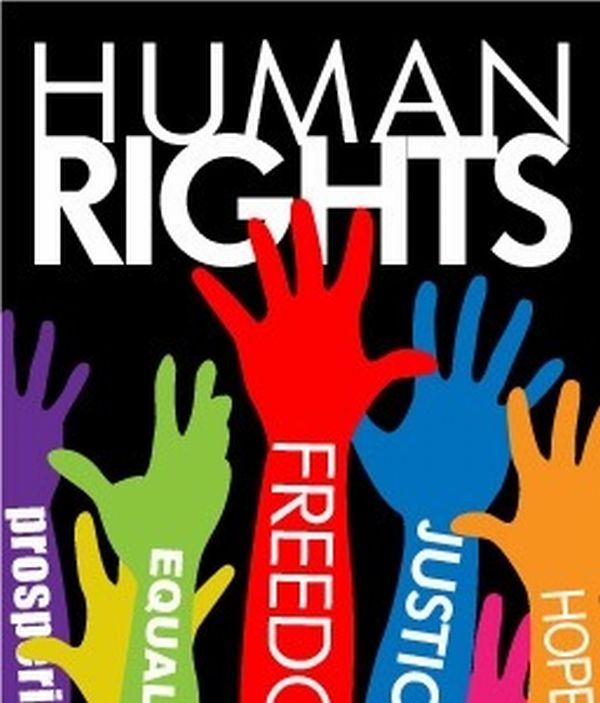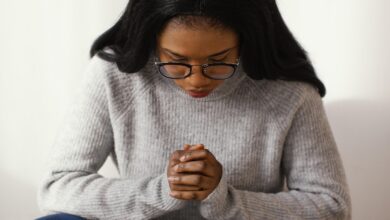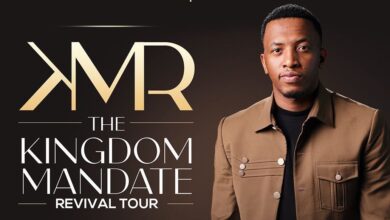30 Basic Rights Every South African Should Know About

Human rights are the basic rights that everyone has, simply because they are human. They do not have to be earned and they are not privileges which someone gives to you. You have them from the moment you are born. Because they are rights, they cannot be taken away. Because everyone has human rights, we must make sure that we respect other people’s rights. If we want our rights to be respected, we must not do anything that violates another person’s rights. Also, these rights do not replace the laws we already have, and so we must respect these laws as well. If you didn’t know your rights, it’s time to get familiar with them through this list.
1. Equality
All people are equal and must be treated equally. No one is allowed to discriminate against you because of your race, gender, sex, pregnancy, marital status, ethnic or social origin, colour, sexual orientation, age, disability, religion, conscience, belief, culture, language or birth.
2. Human dignity
You have dignity because you are a human being and your dignity must be respected and protected.
3.Life
You have the right to life. No-one should take your life away, not even the state
4. Freedom and security of the person
• You can only be imprisoned if there is a good reason.
• You cannot be detained without trial and torture is not allowed.
• You have the right to be free from all forms of violence, even in your own home. This is to stop people abusing their wives, husbands, children, girlfriends or boyfriends.
• You cannot be treated or punished in a cruel, inhuman or degrading way. Corporal punishment (like caning or whipping) is not allowed, in schools or homes.
• You have the right to make decisions about whether you want to have children.
• You have control over your body. You cannot be forced to undergo medical or scientific experiments against your will.
5. Slavery, servitude and forced labour
These are not allowed.
6. Privacy
You cannot be searched or have your home or possessions searched. The government cannot take your things, open your mail or listen to your telephone calls.
7. Freedom of religion, belief and opinion
• You can believe whatever you want and you can follow the religion of your choice.
• State institutions (like schools) can follow religious practices (such as prayers in the morning), but people cannot be forced to attend them.
• You can get married traditionally or under the laws of your religion, as long as these laws do not go against the Constitution.
8. Freedom of expression
This is sometimes called ‘freedom of speech’. Everyone, including the press, may say, write or print photographs of whatever they want. But no-one is allowed to spread propaganda for war, or encourage people to use violence. Language which tries to get people to cause harm to other people because of their race, ethnicity, gender or religion is not allowed.
9. Assembly, demonstration, picket and petition
You can:
• gather together with other people;
• hold a demonstration;
• picket;
• present a petition.
But you must do this peacefully and you cannot carry a weapon.
10. Freedom of association
You can associate with whomever you want to. This means you can be friends or business partners with anyone you want to, and you can meet or form an organisation with anyone you want to.
11. Political rights
If you are a citizen, you can:
• join a political party;
• encourage other people to join this party; and
• start your own political party.
Elections for national, provincial and local government must be held regularly and they must be free and fair. If you are a citizen, and at least 18 years old, you can:
• vote in secret in any of these elections; and
• stand for election yourself
12. Citizenship
Your citizenship cannot be taken away from you.
13. Freedom of movement and residence
• You can go or live wherever you want in South Africa.
• You can leave South Africa if you choose and come back at any time.
• The government cannot take away your passport.
14. Freedom of trade, occupation and profession
You can choose to do whatever work you want, as long as you have the qualifications, skills or experience needed for the job.
15. Labour relations
• You have the right to be treated fairly at work.
• Workers can form and join trade unions and can strike.
• Employers can form and join employers’ organisations.
• Trade unions and employers’ organisations can decide how they will be run. They can get together with other unions or organisations to bargain for what they want. They can also organise themselves by trying to get new members and they can join federations made up of other trade unions or employers’ organisations.
16. Environment
You have the right to a healthy environment. The government must do things (such as passing laws) to protect the environment.
17. Property
Your property can only be taken away from you by the government
if:
• the law allowing this applies to people in general and not only one group;
• your property is going to be used for a public purpose or in the public interest (for example, if the government is going to build a dam and your property will be flooded); and
• you are paid for your property. The amount of money the government will pay can either be agreed between you and the government, or it can be decided by a court if you cannot agree. This section says what a court must look at when deciding how much money the government must pay.
18. Housing
You have a right to have access to housing. You cannot be evicted from your home and your home cannot be broken down unless a court has heard your case.
‘Access to housing’ does not mean that you have a right to a house. It only means that no one can stop you getting a house. Or, if you already have a house, no-one can take it away from you. But this right does say that the Government, with the money it has, must try to make it possible for people to get proper housing.
19. Health care, food, water and social security
The government must do things, such as passing new laws, to make sure that you have access to:
• health care services;
• food and water;
• social security, including assistance to people who cannot support themselves and their dependants.
You do not have the right to these things. Instead, you have the right to have access to them. So no-one can stop you getting these things or take them away from you if you already have them. And the government must use the money it has to try and make sure you get these things. This right also says that you cannot be refused medical care in an emergency, even if you cannot pay for it at that time.
20. Children
In addition to all the other rights in the Bill of Rights, children under the age of 18 have special rights. These include the right:
• to family care or other care if the child is removed from its family;
• to food, shelter and health care;
• not to be abused or neglected;
• not to be forced to work or given work which is not suitable for a child;
• not to be detained* unless this is absolutely necessary. In such a case, the child must be kept separate from adults;
• to be given a lawyer if necessary;
• not to be used to fight during armed conflict or war, but to be protected.
21. Education
You have the right to basic education, including adult basic education, in the language of your choice (if this is possible). Although the Bill of Rights does not say what basic education is, the government’s policy at the moment is that this is education up to Grade 9 and adult basic education is education up to Level 4. Although basic education is given free at the moment, the Bill of Rights does not say that this must be free. The government must try to make sure that people are able to get further education (such as at a university or technikon). But this does not mean that this must be free. Private schools, universities and technikons are allowed, but these cannot discriminate against students because of their race.
22. Language and culture
You can use the language and follow the culture that you choose, but you must respect other people’s human rights when you do so.
23. Cultural, religious and linguistic communities
Communities can:
• enjoy their own culture;
• practice their own religion;
• use their own language; and
• set up their own organisations.
But they must respect other human rights when they do so.
24. Access to information
You have the right to:
• any information which the government has; and
• information that someone else (like a private company) has if you need it to protect one of your rights.
25. Just administrative action
Administrative action (that is, action by the government or government departments) must be allowed by the law, it must be reasonable, and the procedures used must be fair. You can ask for written reasons for any decision that is made by government which goes against one of your rights.
26. Access to courts
You can have a legal problem decided by a court, or a similar structure.
27. Arrested, detained and accused persons
This section sets out the rights which you have if you are arrested, imprisoned or accused of committing a crime. They include the
right:
• to keep silent and not be forced to make a confession;
• to be taken to court within 2 days of your arrest;
• to be released, either on warning or on bail, unless there is a good reason to keep you in jail;
• to be given a lawyer paid for by the government if you cannot afford a lawyer and where an injustice might happen if you are not given a lawyer;
28. Limitation of rights
The rights in the Bill of Rights may be limited only in terms of law of general application to the extent that the limitation is reasonable and justifiable in an open and democratic society based on human dignity, equality and freedom, taking into account all relevant factors, including:
• the nature of the right;
• the importance of the purpose of the limitation;
• the nature and extent of the limitation;
• the relation between the limitation and its purpose; and
• less restrictive means to achieve the purpose.
29. States of emergency
A state of emergency may be declared only in terms of an Act of Parliament, and only when-
• the life of the nation is threatened by war, invasion, general insurrection, disorder, natural disaster or other public emergency; and
• the declaration is necessary to restore peace and order.
30. Interpretation of Bill of Rights
When interpreting the Bill of Rights, a court, tribunal or forum-
• must promote the values that underlie an open and democratic society based on human dignity, equality and freedom;
• must consider international law; and
• may consider foreign law.
When interpreting any legislation, and when developing the common law or customary law, every court, tribunal or forum must promote the spirit, purport and objects of the Bill of Rights.
The Bill of Rights does not deny the existence of any other rights or freedoms that are recognised or conferred by common law, customary law or legislation, to the extent that they are consistent with the Bill.









